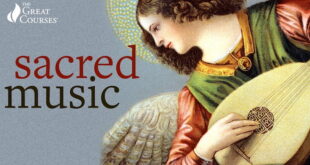Last month, we went over some tricky problems with handwriting in old Italian records. We have to use some simple techniques to help you read the records with less effort and more accuracy. These techniques may not work in every situation but they are a standard logic to help you reduce the number of possible letters to choose from in each word. You may see a very poorly written word that looks at first glance like Mrysiclush, but that doesn’t make sense in Italian no matter what part of the record you are reading. Handwriting tip #1 is the easiest …
Read More »Memories of Easters past
With the frigid temperatures (hopefully) a distant memory, we can now set our sights on the warmer months to come. The one pleasure of surviving a Chicago winter is planning to make the best possible use of the coming good weather. Right now, we’re in the midst of Lent which began on February 22, and we’re looking forward to our Easter celebration on April 9. Easter was always a big deal at St. Anthony of Padua Parish on Kensington Avenue. Back in the 1950s and before, Catholicism was in full stride in our part of Roseland and the many reminders …
Read More »Video series tracks evolution of sacred music in Catholicism
The official music of the Roman Catholic Church for hundreds of years was Gregorian chant, which consists of Latin verses sung to a solemn melody without accompaniment. The calm, ethereal tone of Gregorian chant was meant to set the musical stage for the prayers and rituals of the Mass. It was named after Pope Gregory I, who was credited with creating it, although it actually evolved over the course of centuries. Several thousand chants are known today and most of them date from 600-1300 A.D. However, there is virtually no record of the composers who created them. Because of the …
Read More »Being polite with “volere”
The Italian Verb Volere Volere means “to want” or “to desire,” and is classified as a modal, or helping verb. This means that volere provides information about one’s wish or intention to complete the main action described in a sentence. When used in this way, volere is conjugated to reflect the speaker and the action verb follows directly after in its infinitive form — that is, the action verb is not conjugated! (Remember that Italian verbs are categorized into three infinitive forms by the following endings: -are, -ere, and -ire, and that English infinitive verbs are preceded by “to,” as in, …
Read More »An Italian Valentine’s Day
Over the centuries, writers have pondered the question, “Che cos’è l’amore?” “What is love?” And since the Italian poet Petrarch expressed his great love for Laura in the 14th century, love poems have often taken the form of he used — the sonetto, or sonnet. These “little songs” are 14 lines long and follow a specific rhythm and rhyme scheme. When Shakespeare took up the sonnet in the 16th Century, he changed Petrarch’s form and made it his own; Shakespeare used the sonnet to write some of the most famous lines about love in existence today. Shakespeare’s contemporaries and many poets who …
Read More »Decoding records indexes
Let’s discuss how this all works. Most records are hand-written. Problem number one. So for them to be indexed on-line, someone has to read them and type them in. This, of course, is called “indexing.” I know they are working on computer technology to try to read handwriting and convert it into computer text, but let’s presume that such technology is a long way from perfection, especially when reading handwriting from a century or two ago. So who is indexing the billions of records so we can search them so easily? We could probably end all unemployment if people could …
Read More »Memories we love
When it comes to love and the month of February, we don’t have to look any further than the good old days in Kensington, Pullman and Roseland. The mere mention of a time, place or event from those neighborhoods brings back a flood of fond recollections about growing up in the greater Roseland community. When it comes to our love of all things Roseland, who doesn’t remember the earliest days of their youth running around the neighborhood with the other kids. Sometimes, the best memories were created with siblings and other times with the kids next door or across the …
Read More »Cinemadamare offers young filmmakers a springboard
Founded in 2003 by Franco Rina, Cinemadamare is an Italian-based international program offering hands-on filmmaking to the directors of tomorrow. Now in its 20th edition, the program gives film students the freedom and equipment to explore their creativity surrounded by the picturesque and seascapes and landscapes of the Italian peninsula. On a recent stay in Matera, the participants of the program made 16 short films in just one week. Upon completion, the filmmakers presented their works in a special community screening followed by an awards ceremony. That’s where I met up with Rina to talk with him about the program …
Read More »My dad, Aaron Judge and me
I am writing this the morning after Aaron Judge of the New York Yankees hit his 62nd home run of the season, breaking Roger Maris’ American League record of 61, which he set 61 years ago. I immediately thought of my dad, his youth, my life as his son and our relationship with the American pastime. Anthony Quilico was born in 1901 in the coal mining Italian enclave of Seatonville in Bureau County, Illinois. His dad worked the mines until 1909, when the mine fire in nearby Cherry, Illinois, convinced him to take a job with the railroads. Many miners …
Read More »Remembering “Big Nonna”
For the past two months, I have been writing about how we need to talk to our older relatives and learn everything you can, because once they leave us, their memories of those who are long gone will no longer be accessible to us. That happened on Nov. 3 when our family matriarch, Mary Purpura, finally succumbed to old age just short of 101 years old. Technically, she was my grandfather’s kid sister. In reality, she was “Big Nonna,” grandmother to practically everyone whose lives she touched, including me. Why “Big Nonna”? Well, she was mother of 11 children and …
Read More » Fra Noi Embrace Your Inner Italian
Fra Noi Embrace Your Inner Italian











